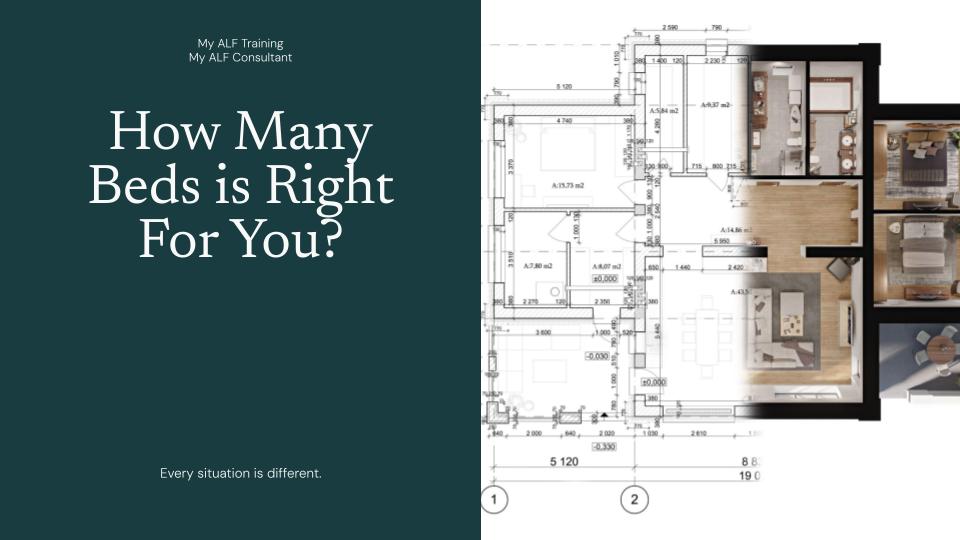Geriatric Care Managers and Legal Guardians in Assisted Living Facilities
In an assisted living facility (ALF), the physical health and well-being of residents are top priorities, but there are also important non-medical needs that must be addressed. Care managers and guardianship services play a crucial role in assisting residents with managing their personal, legal, and financial affairs. Whether it’s coordinating healthcare services, making decisions about medical care, or handling legal matters, these professionals help ensure that residents receive the appropriate support and that their rights are protected. In this post, we will dive into what care managers and guardianship services are, how they can benefit your facility and its residents, and best practices for integrating these services into your operations.
What Are Care Managers and Guardianship Services?
Care Managers
A care manager, also known as a care coordinator or case manager, is a professional who assists individuals, particularly seniors, in managing their healthcare, social, and personal needs. They work directly with residents and their families to develop comprehensive care plans, connect residents with services, and ensure that all aspects of their care are being met.
Care managers often have backgrounds in nursing, social work, or gerontology, and they typically have expertise in navigating the complex healthcare and social service systems. Their role is particularly vital when residents have chronic conditions, dementia, or other needs that require frequent medical attention or special accommodations.
Guardianship Services
Guardianship services, on the other hand, typically apply to individuals who are legally unable to make decisions for themselves due to cognitive decline, mental illness, or other disabilities. In such cases, a court appoints a legal guardian to make decisions on behalf of the individual regarding medical care, financial matters, and legal issues. Guardianship may also involve managing the person’s living arrangements and ensuring their general well-being.
Guardianship services are often used when a resident no longer has family members or designated power of attorney to handle their personal affairs, or when the individual is incapable of making informed decisions about their own care.
The Role of Care Managers in Assisted Living
Care managers are a valuable resource for both residents and their families, providing essential assistance in managing healthcare needs, organizing personal affairs, and advocating for the best possible outcomes. Their responsibilities are diverse and can vary depending on the specific needs of the resident, but generally include:
1. Creating and Managing Care Plans
Care managers develop individualized care plans that outline the medical, social, and personal needs of residents. These plans are regularly updated to reflect changes in health status or other life circumstances. A well-constructed care plan helps ensure that residents receive the appropriate services, such as physical therapy, counseling, or dietary support.
2. Coordinating Services and Resources
Care managers assist with coordinating various services, including healthcare, legal, and social services. For instance, they may help arrange transportation for doctor’s appointments, schedule visits from healthcare providers, or connect residents with community resources for additional support.
3. Family Communication and Support
Care managers act as a liaison between the resident, their family, and the facility. They provide families with updates on the resident’s condition, suggest ways to improve care, and offer advice on how to navigate the complex healthcare system. This communication helps families stay informed and engaged in their loved one’s care while relieving them of some of the administrative burdens.
4. Crisis Management
In cases of emergency or when the resident’s health status changes suddenly, care managers can quickly assess the situation and make recommendations for the next steps. This could include coordinating a transfer to a hospital, arranging additional services, or adjusting the care plan to address urgent needs.
The Role of Guardianship Services in Assisted Living
For residents who have lost the ability to make decisions independently, guardianship services become essential. These services involve a legally appointed guardian who is responsible for making decisions on behalf of the resident. Guardianships are often court-ordered and can be established for individuals with advanced dementia, developmental disabilities, or other conditions that impair decision-making ability. Guardians are often tasked with the following responsibilities:
1. Making Legal and Financial Decisions
A guardian is responsible for managing the resident’s financial matters, including paying bills, handling investments, and ensuring that the resident’s resources are used for their care. Guardians are also responsible for making legal decisions regarding the resident’s healthcare, housing, and overall welfare.
2. Medical Decision-Making
A guardian may be called upon to make critical medical decisions if the resident is unable to do so. This includes decisions about life-saving treatments, medications, and long-term care options. Guardians are required to act in the best interest of the resident, ensuring that all decisions align with the resident’s preferences and rights, as much as possible.
3. Advocating for the Resident’s Rights
Guardians are advocates for the resident, ensuring that their rights are upheld in all areas of life. They work to ensure the resident’s dignity, autonomy, and well-being are preserved, even when the individual can no longer make these decisions on their own.
How Care Managers and Guardianship Services Benefit Assisted Living Facilities
Integrating care managers and guardianship services into your facility can greatly enhance the quality of care and support you provide. Here’s how they can benefit your residents and your operations:
1. Legal and Medical Oversight
Care managers and guardians help ensure that all decisions made on behalf of residents are in compliance with legal and medical standards. This helps protect your facility from liability issues and ensures that residents’ rights are respected.
2. Improved Care Coordination
By handling complex care coordination tasks, care managers ensure that all services are organized and managed effectively, reducing the administrative burden on staff and improving the overall efficiency of the facility.
3. Family Satisfaction and Support
Having a dedicated care manager to communicate with families and support their loved ones’ care can improve family satisfaction. It can also help alleviate the stress that often accompanies caring for elderly or ill relatives, as families feel more supported and confident in their loved ones’ care.
4. Addressing Complex Needs
For residents with complex medical, financial, or personal situations, care managers and guardianship services provide critical support in ensuring that all aspects of their care are properly addressed. This includes connecting residents with legal services, managing finances, and making decisions regarding their care.
Best Practices for Collaborating with Care Managers and Guardianship Services
To make the most of these services, ALFs should establish clear protocols for collaborating with care managers and guardianship professionals:
1. Vetting and Selecting Care Managers and Guardians
It’s important to select qualified and experienced care managers and guardians who are familiar with the unique needs of your residents. Take the time to interview potential partners and check their credentials and references.
2. Regular Communication and Updates
Develop a communication plan to ensure regular updates between care managers, guardians, staff, and families. This ensures that everyone involved in a resident’s care is on the same page and that no important information is overlooked.
3. Collaboration and Integration
Care managers and guardians should be viewed as collaborative partners in the care process. Work closely with them to create and implement care plans that meet each resident’s unique needs.
4. Legal and Ethical Considerations
Ensure that all guardianship and care management services comply with relevant state and federal laws. This includes maintaining confidentiality, respecting residents’ rights, and acting within the scope of authority granted by the court or through legal agreements.
Conclusion
Care managers and guardianship services are vital resources for ensuring that residents of assisted living facilities receive the personalized care and legal oversight they need. These professionals help navigate complex healthcare and legal systems, coordinate services, and advocate for residents’ rights and well-being. By integrating care management and guardianship into your facility’s operations, you can enhance the quality of life for residents and foster stronger relationships with families, creating a more supportive and compassionate care environment.
In the next post, we’ll explore the role of walk-in clinics and medical facilities and how proximity to these services can benefit residents and enhance care.
Feel free to provide feedback or let me know if you’d like any adjustments to this post!






